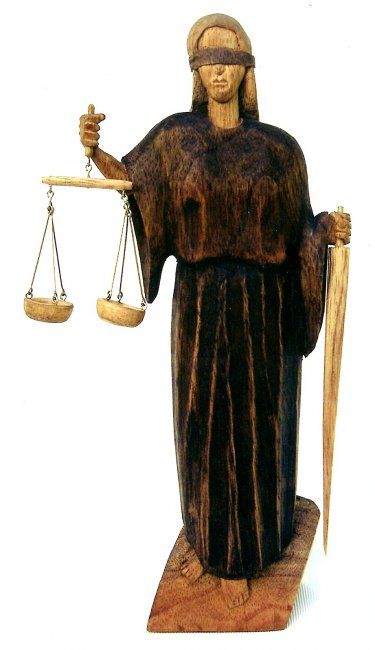Justice is the sum of all moral duty.
William Godwin
Principles of Insurance
(part A)
by
Charles Lamson
Insurance provides a fund of money when a loss covered by the policy occurs. Life is full of unfavorable financial contingencies. Not every financial peril in life can be shifted by insurance, but many of the most common perils can. Insurance is a contract whereby a party transfers a risk of financial loss to the risk bearer, the insurance company, for a fee.
 |
Every insurance contract specifies the particular risk being transferred. The name that identifies the policy does not control either the coverage or protection of the policy. For example, a particular contract may carry the name "Personal Accident Insurance Policy," but this they may not clearly indicate the risk being assumed by the insurance company. A reading of the contract may reveal that the company will pay only if an accident occurs while the insured is actually attending a public school. In such a case, in spite of the broad title of the policy, the premium paid covers only the described protection against the financial loss due to an accident, not the loss due to any accident. The contract determines the risk covered, and it binds the parties.
Terms Used in Insurance
The company agreeing to compensate a person for a certain loss is known as the insurer, or sometimes as the underwriter. The person protected against the loss is known as the insured, or the policy holder. In life insurance the person who will receive the benefits or the proceeds of the policy is known as the beneficiary. In most states the insured may make anyone the beneficiary.
Whenever a person purchases any kind of insurance, a contract is formed with the insurance company. The written contract is commonly called a policy. The maximum amount that the insurer agrees to pay in case of a loss is known as the face of the policy, and the consideration the insured pays for the protection is called the premium.
The danger of a loss of, or injury to, property, life, or anything else, is called a risk or peril; when the danger may be covered by insurance, it is known as the insurable risk. Factors such as fire, floods, and sleet, which contribute to the uncertainty, are called a hazards.

An insurance company assumes the risks caused by normal hazards. The insured must not do anything to increase the risk. Negligence by the insured constitutes a normal hazard. Gross negligence indicating a criminal intent does not. With regard to the risk, when a loss occurs, the insured must use all due diligence to minimize it. However, the insured has no responsibility for an increased risk over which the insured has no control or knowledge. For example, the insured must remove household effects from a burning building or keep a car involved in an accident from being vandalized if it can be done safely.
A rider on an insurance policy is a clause or even a whole contract added to another contract to modify, extend, or limit the base contract. A rider must be clearly Incorporated in, attached to, or referred to in the policy so that there is no doubt the parties wanted it to become a part of the policy.
Frequently an individual needs insurance coverage immediately, or before an insurer can issue a formal policy. Insurance agents customarily have the authority to issue a binder, or a temporary contract of insurance, until the company investigates the risk and issues a formal policy.
Types of Insurance Companies
There are two major types of insurance companies:
Stock Companies
A stock insurance company is a corporation for which the original investment was made by stockholders and whose board of directors conducts its business. As in all other corporations, the stockholders elect the board of directors and receive the profits as dividends. Unlike other corporations, insurance companies must place a major portion of their original capital in a reserve account so claims can be paid. As business volume increases, companies must increase the reserve by setting aside part of the premiums into this account.

Mutual Companies
In a mutual insurance company the policyholders are the members and owners and correspond to the stockholders in a stock company. In these companies the policyholders are both the insurer and the insured, but the corporation constitutes a separate legal entity. A person who purchases a $10,000 fire insurance policy and a mutual company that has 10 million dollars of insurance in force 1/1000 of the company and is entitled to share the profits in this ratio. Losses may also have to be shared in the same ratio in an assessment mutual company. A policyholder is not subject to assessment where the policy makes no provision for it. In a stock company, policyholders never share the losses.
Who May Be Insured
To contract for a policy of insurance, an individual must be competent to contract. Insurance does not constitute a necessary thus, a minor who wishes to disaffirm (repudiate; declare void) is not bound on insurance contracts. A minor who disaffirms a contract may demand the return of any money. Since insurance contracts provide protection only, this cannot be returned. Some states hold that because of this a minor can demand only the unearned premium for the unexpired portion of the policy. A few states have passed laws preventing minors from disaffirming some insurance contracts by reason of minority.
To become a policyholder, one must have an insurable interest. An insurable interest means that the policyholder has an interest in the nonoccurrence of the risk insured against, usually because there would be financial loss. The insurance contract is in its entirety an agreement to assume a specified risk. If the insured has no interest to protect, there can be no assumption of risk, and hence no insurance. The law covering insurable interest is different for life insurance and for property insurance.

Life Insurance
The insured has an insurable interest in his or her life. When people ensure another's life, however, and make themselves or someone else the beneficiary, they must have an insurable interest in the life of the insured at the time the policy is taken out. That interest normally does not need to exist at the time of the death of the insured. However, if a court finds that there is no longer an insurable interest, and that the interest of the beneficiary is adverse to that of the insured, the policy could be invalidated.
A person who has an insurable interest in the life of another when such a relationship exists between them that a reasonable expectation of benefit will be derived from the continued existence of the other person. The relationships most frequently giving rise to an insurable interest are those between partners and children, husband and wife, partner and copartner, and a creditor in the life of the debtor to the extent of the debt. There are numerous other relationships that give rise to an insurable interest. With the exception of a creditor, if the insurable interest exists, the amount of insurance is irrelevant.
Property Insurance
One must have an insurable interest in the property at the time the policy is issued and at the time of loss to be able to collect on a property insurance policy. Ownership is, of course, the clearest type of insurable interest, but there are many other types of insurable interest. Insurable interest occurs when the insured would suffer a monetary loss by the destruction of the property. Common types of insurable Interest other than ownership include:

A changing title or possession of the insured property may destroy the insurable interest which in turn may void the contract, because insurable interest must exist at the time of the loss.
*SOURCE: LAW FOR BUSINESS, 15TH ED., 2005, JANET E. ASHCROFT, J.D., PGS. 446-450*
end
|











